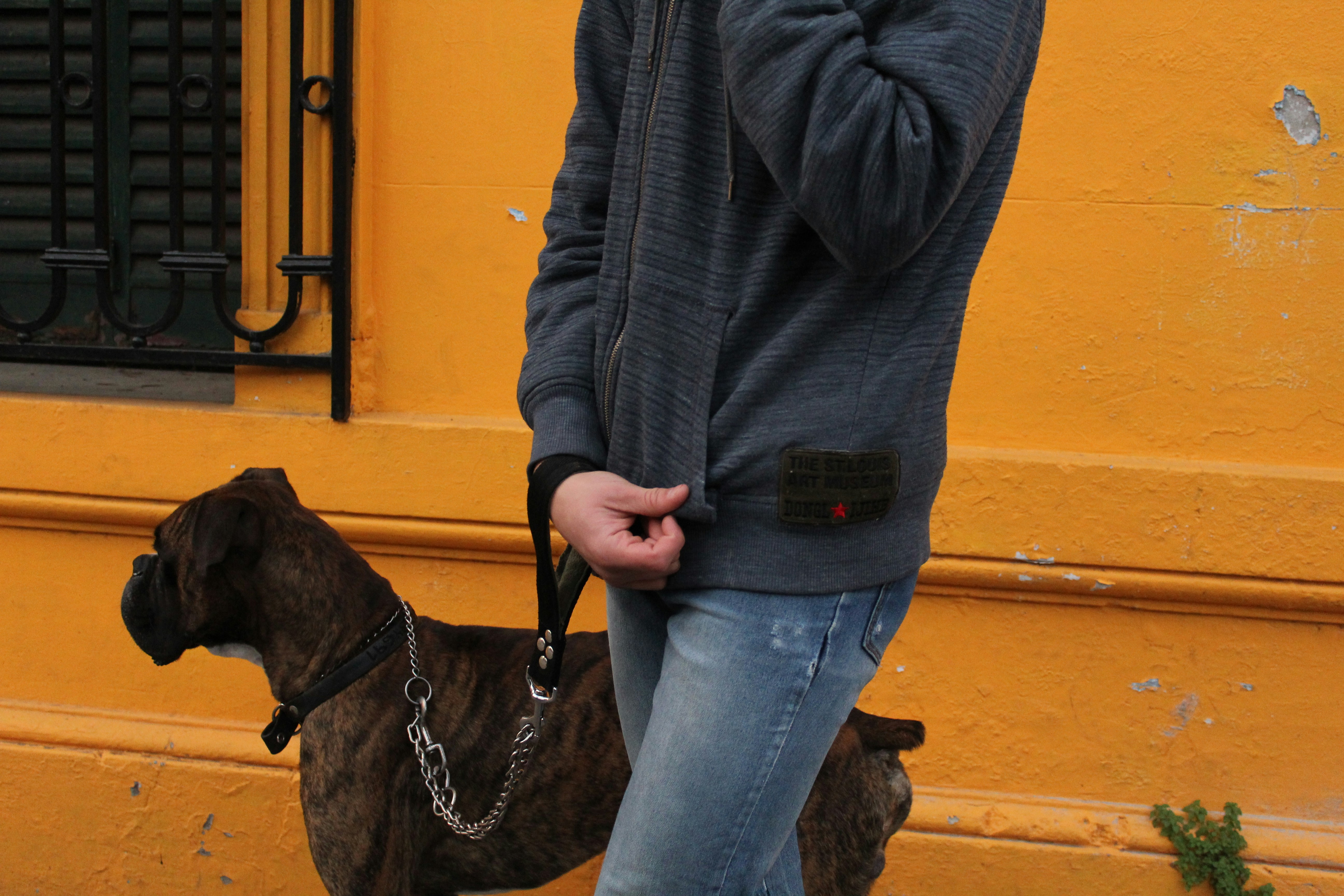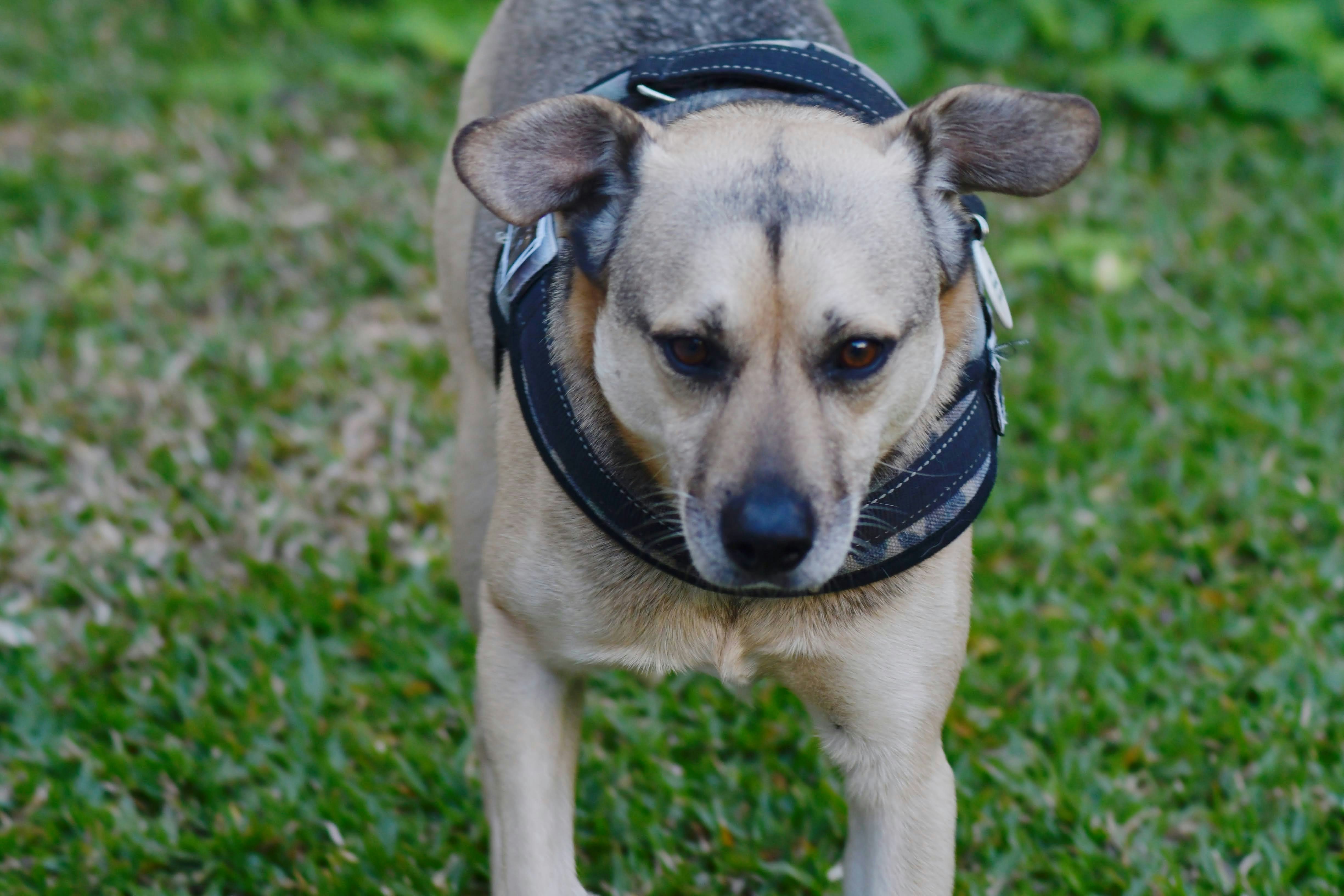Introduction

Are you struggling to find the perfect collar for your furry friend? Look no further! In this comprehensive guide, we'll explore the world of canine collars, including the controversial canine pinch and choke collars. We'll also explore the importance of choosing the right dog collar and provide valuable insights into selecting the best option for your beloved pet. Get ready to unleash the power of knowledge and make informed decisions regarding your dog's training gear.
Understanding Canine Pinch Collar and Choke Collar
When training your canine companion, understanding the differences between a canine pinch collar and a choke collar is crucial. While both have their proponents and opponents, it's essential to weigh the pros and cons of each type before making a decision. We'll examine how these collars work, their potential benefits, and any associated risks.
The Importance of Choosing the Right Dog Collar
Choosing the right dog collar is essential for your furry friend's comfort, safety, and training. With a wide variety of styles and materials available, it can be easy to feel overwhelmed during your search. But fret not! Here are some key factors to consider when selecting the perfect collar for your dog:
- Breed and Size: A Great Dane requires a sturdier collar than a Chihuahua. Consider your dog's breed and size to ensure a proper fit that's comfortable and secure.
- Activity Level and Pulling: Does your dog love to pull on walks? A standard buckle collar might not be the best choice. Explore options like harnesses or martingale collars designed for better control.
- Material: Leather collars offer a classic look but require more maintenance. Nylon collars are generally durable and water-resistant, while padded collars provide extra comfort. Choose a material that suits your dog's lifestyle and your preferences.
- Training Needs: A head halter can be helpful if you're actively training your dog. However, a comfortable and secure collar might be more suitable for everyday use.
- Safety and Identification: Ensure the collar fits snugly enough to prevent escape but loose enough for two fingers to fit comfortably underneath. Remember, a collar with proper identification tags is crucial for your dog's safety in case they ever get lost.
By considering these factors, you can choose a dog collar that looks great and prioritizes your dog's well-being.
Canine Pinch Collar: Benefits and Proper Usage

Canine pinch collars are a great tool for training your furry friend without harming him or her. PawsRush's canine pinch collar is designed to provide gentle guidance, making it an effective option for teaching your dog proper behavior. When searching for good dog collars, it's important to consider the benefits of using a prong collar, as they can be a safe and humane choice for training.
Gentle Training with PawsRush's Canine Pinch Collar
PawsRush's canine pinch collar is crafted with high-quality materials that ensure comfort and safety for your dog. The prongs on the collar are rounded and blunt, providing a gentle yet effective way to correct your dog's behavior without causing any harm. This makes it an ideal choice when looking for a good dog collar that won't compromise your pet's well-being.
Effective Canine Training Collars
When choosing the right canine training collars, effectiveness is key. PawsRush's canine pinch collar offers a reliable solution for pet owners who want to train their dogs humanely. The prong collar's design allows for quick and precise correction, making it an efficient tool for teaching obedience and proper behavior.
In conclusion, consider the benefits of using a canine pinch collar like PawsRush's product when searching for the best dog collars. It provides gentle yet effective training, making it a great choice as a good dog collar option that prioritizes your pet's well-being.
Choke Collar: Risks and Alternatives

Risks of Using Choke Collar for Dogs
Using a choke collar on your dog can pose serious risks to their health and well-being. The pressure applied to the neck can cause injuries, including tracheal damage and neck pain. Additionally, it can lead to behavioral issues such as fear and aggression in dogs.
Exploring Safer Alternatives to Choke Collars
Instead of using a choke collar, consider safer alternatives such as a prong collar or a canine pinch collar. These collars provide effective training without harming your dog's neck or behavior. They distribute pressure more evenly and are designed to gently guide your dog without causing discomfort.
Additionally, harnesses are another great alternative to choke collars. They distribute pressure across the chest and shoulders, reducing the risk of injury to your dog's neck. Harnesses also provide better control and are especially useful for dogs with respiratory issues or neck injuries. With various styles and sizes available, you can easily find the perfect harness for your furry friend.
When training your canine companion, it's crucial to prioritize their safety and comfort. Opting for safer alternatives like prong collars or canine pinch collars can ensure effective training without putting your dog at risk of injury or behavioral issues. Additionally, using positive reinforcement techniques alongside these collars can further enhance the training process, promoting a healthy and trusting relationship between you and your furry friend. By understanding your dog's behavior and utilizing the right tools, you can create a positive and enriching training experience for you and your pet.
Understanding Canine Behavior and Collar Effectiveness

Canine behavior plays a crucial role in the effectiveness of dog collars for dogs. Understanding how dogs think and react is essential in choosing the right collar for your furry friend. Different breeds have unique needs, so it's important to consider their size, temperament, and training requirements when selecting a canine collar.
Impact of Canine Psychology on Collar Effectiveness
Canine psychology greatly influences how dogs perceive collars. For instance, some dogs may respond well to positive reinforcement with a prong collar, while others may find it stressful. It's essential to consider your dog's personality and behavior when deciding which collar is best suited for them.
Choosing the Right Collar for Your Dog's Unique Needs
Selecting the right collar keeps your dog comfortable and safe while also aiding in training. Consider these factors to find the perfect fit for your furry friend:
- Size and Strength: Larger breeds or strong pullers might need a wider, sturdier collar for better control.
- Temperament: Sensitive pups might do better with softer materials or a martingale collar that discourages slipping.
- Training Needs: Pinch collars can be helpful for stubborn dogs, but always use them with proper training methods.
Remember, the right collar should be comfortable and appropriate for your dog's needs. By making an informed choice, you can ensure happy walks and effective training sessions for you and your canine companion.
Tips for Proper Collar Training and Use

Proper Training Techniques with Canine Collars
When using a canine pinch or prong collar, it's crucial to start with positive reinforcement training. Reward your dog for good behavior rather than relying solely on the collar to correct bad habits. Additionally, always use gentle, consistent pressure when guiding your dog with the collar to avoid causing discomfort or fear.
Ensuring Comfort and Safety with Dog Collars
To ensure your dog's comfort and safety, it's important to check the fit of their collar regularly. A properly fitted collar should be snug enough that it won't slip off but not so tight that it causes discomfort. Inspecting the collar for any signs of wear and tear is also essential, as damaged collars can pose a risk to your dog's safety.
Regularly checking the fit of your dog's collar is crucial, as dogs can quickly grow or gain/lose weight, causing their collar to become too loose or tight. A properly fitted collar should allow you to slip two fingers comfortably between the collar and your dog's neck. This ensures it's snug enough to stay in place but not so tight that it restricts their movement or causes discomfort.
PawsRush's Canine Pinch Collar: A Safe and Effective Option

Exploring the Features of PawsRush's Canine Pinch Collar
PawsRush's canine pinch collar is designed with high-quality stainless steel prongs that provide gentle pressure to correct your dog's behavior without causing harm. The adjustable size ensures a comfortable fit for any breed, and the quick-release buckle allows for easy removal after training sessions.
Furthermore, PawsRush's canine pinch collar's durable construction ensures that it can withstand the wear and tear of regular use, making it a long-lasting training tool for your furry friend. The smooth prongs are designed to provide effective correction without causing discomfort or injury to your dog, promoting safe and humane training practices. With its sleek and modern design, this pinch collar is functional and stylish, allowing your pup to train in fashion.
Conclusion

There you have it—the ins and outs of choosing the right collar for your canine companion. Whether you opt for a canine pinch collar, prong collar, or any other type of dog collar, it's crucial to prioritize safety and effectiveness in your training methods. Remember, a good dog collar suits your dog's unique needs and ensures gentle yet impactful training.
When it comes to choosing the suitable collar for your canine companion, it's important to consider the specific needs and temperament of your dog. Some dogs may respond well to a traditional flat collar, while others may require a more specialized training collar. It's essential to assess your dog's behavior and consult a professional trainer to determine the best option for gentle yet effective training.
Choosing the Right Collar for Your Canine Companion
When choosing a collar for your furry friend, consider their size, breed, and temperament. A canine pinch collar may suit larger, more stubborn dogs needing extra guidance during training. On the other hand, smaller or more sensitive breeds might benefit from a gentler option, like a regular dog collar or harness.
When choosing a collar for your furry friend, consider their size, breed, and temperament. A canine pinch collar may suit larger, more stubborn dogs needing extra guidance during training. On the other hand, smaller or more sensitive breeds might benefit from a gentler option, like a regular dog collar or harness. It's essential to consider your dog's needs and behavior when selecting the right collar. Additionally, consulting with a professional trainer can provide valuable insight into which type of collar will be most effective for your specific canine companion.
Ensuring Safe and Effective Training Methods
Training your dog with any type of collar should always prioritize its well-being. Use positive reinforcement techniques alongside the chosen collar to encourage good behavior. Regularly check the collar's fit to ensure it's not too tight or uncomfortable for your pup.
